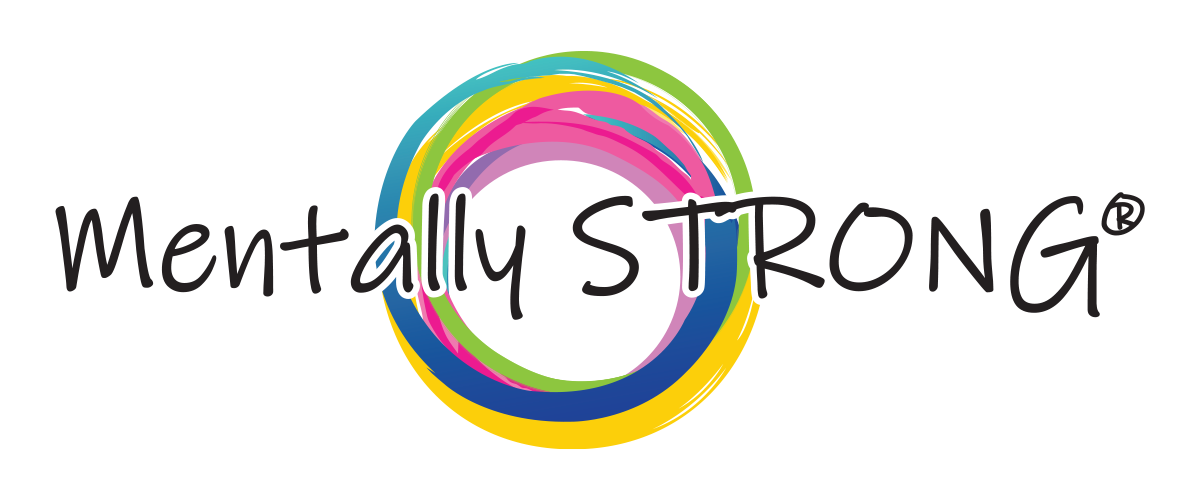Have you ever caught yourself thinking, “Why can’t I just get it together?” Maybe it feels like no matter how hard you try, you’re always falling short. The effort you put in doesn’t seem to pay off, and you’re left feeling drained, defeated, and unsure of yourself.
If this resonates with you, take a deep breath. You’re not alone in feeling this way, even though it can often seem isolating. Feeling like a failure—like you’re somehow less than everyone else—is not just painful; it’s exhausting. It’s the kind of weight that presses down on your chest, making it hard to see a way forward.
These feelings, as overwhelming as they may seem, do not define who you are. They don’t reflect your worth or your potential. They’re reflections of the stories you’ve been told or have told yourself. They’re echoes of past experiences, cultural pressures, and that little voice inside your head that’s been allowed to get far too loud.
You’re here because you’re looking for a way to understand these feelings and move beyond them. Together, let’s unpack what’s fueling this sense of being a “loser” and discover what steps you can take to quiet that inner critic and rewrite the narrative. Because you are so much more than these moments of doubt.
7 Reasons You Might Feel Like a Loser
Where does this feeling of inadequacy come from? Often, it’s not one thing but a collection of internal and external pressures that build up over time. Here are some of the most common reasons you might feel this way:
1. You Set Unrealistic Expectations for Yourself
Have you ever found yourself thinking, “I should be further along by now,” or, “Why can’t I do everything perfectly?” Setting high expectations can be motivating, but when those expectations are impossible to meet, they can leave you feeling like a failure.
It’s easy to fall into this trap, especially if you’ve been raised to believe that success equals worth. But life isn’t a checklist of achievements, and perfection is an illusion. Unrealistic expectations don’t leave room for mistakes, rest, or growth. Without those, it’s impossible to feel satisfied with where you are.
2. You Compare Yourself to Others
In the age of social media and constant connection, comparison feels almost inevitable. It’s so easy to scroll through someone else’s life and think, “Why can’t I have what they have?” But what you’re seeing is a carefully curated version of their reality.
Nobody posts about their self-doubt, their struggles, or their hard days. And yet, we use those polished moments to measure our own worth. Comparison blinds you to your unique strengths and accomplishments, focusing instead on the ways you believe you’re falling short.
3. Past Failures Feel Overwhelming

Do you ever replay moments in your mind where you think you could have done better? It’s natural to reflect on the past, but when those reflections turn into relentless self-criticism, they start to weigh you down.
Sometimes, these patterns are tied to unresolved triggers and core connections, linking current struggles to deeper emotional wounds or past experiences.
Failures (real or perceived) can feel like evidence of your shortcomings, especially when you’re already struggling. But the truth is, failure is part of growth. Each stumble offers lessons that move you forward, even if it doesn’t feel that way at the time.
4. Your Negative Self-Talk Is Loud and Constant
The way we talk to ourselves matters. If your inner dialogue is filled with harsh criticisms like, “I’ll never be good enough,” or, “What’s the point in trying?” it’s no wonder you feel stuck.
Negative self-talk shapes how you feel about yourself. Over time, these unkind words start to feel like facts, making it harder to see yourself with compassion or optimism. The good news is, this narrative can be challenged and changed.
5. You’re Stuck and Not Seeing Progress
Nothing feels more frustrating than putting in effort and not seeing results. Maybe you’re working hard, but the finish line seems to keep moving further away. It’s easy to feel defeated and wonder, “Am I ever going to get there?”
Don’t take being stuck as a sign of you not being capable of doing this, it just means you haven’t found your next step yet. And while it’s hard to notice when you’re in the thick of it, even small actions build momentum over time.
6. You’re Surrounded by Toxic Influences
Sometimes, the people around us can make us feel worse without us even realizing it. Toxic influences like a critical friend, a manipulative partner, or an unsupportive work environment can become powerful triggers that chip away at your self-esteem.
It’s hard to feel confident and valued when you’re constantly being told that you’re not enough. Recognizing these dynamics and the triggers they create is the first step toward breaking free from them.
7. Your Health Is Holding You Back
Physical and mental health challenges can make even the simplest tasks feel monumental. Challenges like chronic pain, fatigue, anxiety, or depression can leave you feeling like you’re falling behind.
It’s important to remember that these challenges don’t reflect your worth. Needing rest, help, or support is not a sign of weakness, it’s a part of being human.
7 Steps to Stop Feeling Like a Loser
When you’re caught in a loop of feeling inadequate, it can feel like nothing will ever change. But these thoughts aren’t the whole truth, they’re a reflection of where you’re at right now. Healing starts with compassion, one small step at a time. You don’t have to have it all figured out, and you don’t have to rush. These steps are a way for you to be conscious about your behaviors and choices. Let’s explore them together.
1. Change the Way You Talk to Yourself
You’ve probably heard this before: Be kind to yourself. But how often do you actually practice it? If your inner voice has been harsh for years, it might feel natural to believe the critical thoughts. It’s not. That voice isn’t telling you the truth, it’s repeating old narratives from pain, fear, or experiences that made you question your worth.
Start by paying attention. When you catch yourself thinking, “I’m such a failure,” or “I’ll never get this right,” stop and ask: Would I say this to someone I love? If the answer is no, find a gentler way to reframe it. For example, replace “I’m such a failure,” with “I’m trying my best, and that counts for something.”
It might feel awkward or forced at first, but that’s okay. You don’t have to believe the positive thoughts right away, but you can stop believing the negative self-talk. Just keep practicing. Over time, this small shift in self-talk can become second nature. You’re not trying to silence your inner critic entirely (it’s persistent), but you can learn to turn down its volume.
2. Start Small and Build Momentum
Feeling like a loser often makes life feel heavy, like every task is monumental. When everything feels overwhelming, the idea of making big changes can paralyze you. But here’s a secret: you don’t have to overhaul your entire life overnight.
Start small. What’s one thing you can do today that feels manageable? Maybe it’s getting out of bed earlier, tackling a chore you’ve been putting off, or simply going outside for fresh air.
Small victories matter more than you think. Accomplishing even one task can create a ripple effect, giving you the confidence to take on the next thing. Progress builds hope, and hope reminds you that change is possible.
3. Focus on What Makes You Strong
Let’s pause here for a moment. Have you ever taken the time to think about what makes you strong? It’s easy to get caught up in what you think you lack but what about the parts of you that are already incredible?
Maybe you’re the person who’s always there for a friend in need. Maybe you have a knack for problem-solving or bring a unique perspective to your work. These are strengths, even if they don’t look like society’s narrow definition of success.
If it’s hard to identify your strengths, try organizing your brain and writing these strengths down. Think about times when you’ve been proud of yourself or moments when others have praised you. Keep this list somewhere you can see it. On days when self-doubt creeps in, let it remind you that there’s more to you than the negative stories your mind wants to tell.
4. Walk Away from Toxic People
The people around you can shape how you see yourself. If you’re surrounded by voices that criticize, belittle, or make you feel small, it’s no wonder you’re questioning your worth. Toxic relationships drain your emotional energy and reinforce feelings of inadequacy.
Walking away from these relationships is hard, especially if they’ve been in your life for a long time. But setting boundaries isn’t selfish; it’s an act of self-respect. You deserve to be surrounded by people who uplift you, who remind you of your strengths and encourage your growth.
If you can’t completely cut ties with someone toxic, try limiting your interactions and protecting your energy. And as you create space, seek out connections with people who see the best in you. Healthy relationships can help rewrite the narrative in your mind that says you’re not enough.
5. Build a Strong Support System
No one can navigate life alone, even if it feels like you’re supposed to. Building a support system doesn’t have to look like reliance on other people to fix your problems. What it really means is to surround yourself with people who care enough to listen, encourage, and stand by you as you find your way.

Start by reaching out to someone you trust, even if it’s just to share a little of what you’re feeling. A trusted friend, family member, or therapist can remind you that you don’t have to carry everything by yourself. Sometimes, just hearing someone say, “I’m here for you,” can ease the burden.
And if you don’t feel like you have a strong support system right now, that’s okay. Building connections takes time. Start small: join a group, reconnect with an old friend, or seek a community that shares your interests. Support doesn’t always have to come from people who’ve been in your life forever.
6. Take Care of Your Body and Mind
When you’re struggling with self-worth, self-care can feel impossible. You might think, Why bother? I don’t deserve it anyway. But that couldn’t be further from the truth. Taking care of your physical and mental health is one of the most powerful ways to rebuild your sense of worth.
Start with the basics. Are you eating nourishing meals, staying hydrated, and getting enough sleep? Movement can also help, whether it’s a short walk, yoga, or even just stretching.
Caring for your mind is just as important. Self-exploration through journaling can help you process your emotions, mindfulness can quiet the noise, and therapy can offer the extra support you need. Every act of care is a message to yourself: I matter.
7. Focus on Progress, Not Perfection
Here’s the truth: perfection doesn’t exist. And yet, so many of us chase it, believing that if we could just get it all right, we’d finally feel good enough. But perfectionism doesn’t lead to happiness; it leads to burnout, self-criticism, and constant disappointment.
Instead of striving for perfection, shift your focus to progress. What small steps have you taken toward growth, even if they don’t look “perfect”? Celebrate those. Each effort you make, no matter how small, is proof that you’re moving forward.
When you’re feeling stuck in patterns of self-doubt or weighed down by negative thoughts, it’s easy to believe there’s no way out. But shifting your mindset and breaking free from these cycles is possible with the right tools and strategies. Approaches like the Mentally STRONG Method can guide you through organizing your thoughts, recognizing patterns, and making empowered choices that align with your values and goals. It’s not about perfection—it’s about finding clarity and creating a path forward, one step at a time.
Final Thoughts on These Steps
These steps aren’t about transforming into someone new but reconnecting with the person you’ve always been. Beneath the doubt and fear lies a version of you that is capable, worthy, and strong.
Every small choice you make now is a gift to your future self, setting up a foundation for strength and resilience.
You don’t have to take every step today. Start with one. Let that one step remind you that change is possible, and that no matter how stuck you feel, you’re never as far from hope as you think.
You Are Not a Loser
Let’s pause for a moment. You’re reading this because something deep within you is seeking reassurance, a reminder that you’re more than the harsh label you’ve placed on yourself. Let me tell you this clearly: You are not a loser, and you are good enough.
That feeling, the one that whispers you’re not enough or that everyone else has it figured out, is not the truth of who you are. It’s a reflection of the pain, the struggles, or the setbacks you’ve been through. It’s easy to confuse what you’re experiencing with who you are. But hear me out: You are not your failures, your mistakes, or your hard days. You are so much more.
The truth is, life is messy. It’s full of missteps and moments where you feel like you’re falling behind. But those moments don’t define you. What defines you is how you show up afterward and how you keep moving forward even when it feels impossible.
A New Perspective on Strength

Think about it this way: The fact that you’re here, reading this, means you’re fighting. It means you care enough to want something different, something better for yourself. That takes courage. You could have stayed stuck in the loop of negative thoughts, but instead, you’re choosing to learn, grow, and challenge that inner voice. That’s not a weakness. It’s resilience.
Strength doesn’t always look like having it all together. Sometimes, it looks like asking for help, admitting you’re struggling, or taking the tiniest step forward when everything inside you says to give up.
Remembering Your Value
When you feel like a loser, it’s because you’ve forgotten your worth. Let me remind you of it: You matter. Not because of what you’ve accomplished or how perfect your life looks, but simply because you exist. Your value isn’t tied to achievements or approval from others. It’s innate, unshakable, and yours no matter what.
Think of the people you care about most in your life. Do you measure their worth by their successes or failures? Of course not. You love them for who they are. That same unconditional love applies to you, even if it’s harder to feel.
Your Next Chapter
Feeling like a loser isn’t permanent. It’s a temporary state, not your identity. And the fact that you’ve made it this far proves that you have what it takes to rewrite this story.
You’ve learned that healing comes in small steps. You’ve seen how changing your inner dialogue, setting boundaries, and focusing on progress over perfection can reshape your world. So what’s next? It’s up to you.
Start where you are, with what you have. You don’t have to do it perfectly, and you don’t have to do it alone. There are people, resources, and tools that can help you find your way; leaning on loved ones, seeking professional support, or using methods like the Mentally STRONG Method to think, organize, and choose your next steps.
A Final Reminder
You are not a loser. You’re a human being doing the best you can with what you’ve been given. You are resilient, capable, and worthy of the life you want to create.
Take a deep breath. Trust yourself. And know this: you are stronger than you realize, and you are never as far from hope as you might think.

